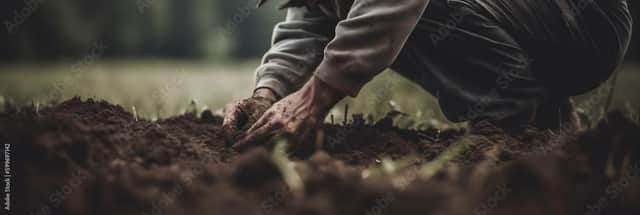Going Green: Last chance to prepare soil before winter sets in


Our shores boast one third of Europe’s total peatland area. Peatland is some of the most carbon rich eco systems on the whole planet. Not only do they encourage a mass of wildlife, they also hugely reduce flood risk and they have a net cooling effect on the planet too.
While very few of us will have peatland in our garden, if you have a patch of green, now is the last opportunity to prepare it for next spring before winter sets in and it starts freezing.
Advertisement
Hide AdAdvertisement
Hide AdFirstly, now’s the time to turn it over and remove any unwanted or dead plants that won’t survive the winter. It might not feel it but there’s a small amount of residual summer warmth in soil at the moment – which is why it’s muddy in a lot of places – so use this to your advantage and turn everything over.
Next up protect any bare patches of soil as this’ll make it easier to give it a turn over again in spring and make it easier to dig into and plant again too. While you can absolutely use soil that’s been frozen and has defrosted again research from Canada suggests the more soil freezes and defrosts, the less nutrient dense it becomes. But what’s best to cover it with? Mulch or compost are great options and when it comes to mulch look for environmentally friendly options or organic if your budget can stretch to that. Or you can make your own with leaves and other garden waste.
Organic mulch not only breaks down into your soil making it nutrient rich, it will also help your soil with water retention so as we head towards hotter summers, mulch in your soil will help with drought and if hose pipe bans come in and you’re reduced to using the watering can.
If you’ve got children, get them outside and getting their hands dirty in the soil too – early relationships with nature go a long way to helping kids want to protect the environment when they get older. So, whether that’s mud pies in an outdoor kitchen, or giving them a trowel and seeing what bugs they discover when they’re turning over a little patch of garden, get them in on the act too to try and start a lifelong relationship with the natural world.
Soil might not be much to look at, but it feeds us, purifies our water, helps to combat drought and can protect against flooding – and those definitely feel like things to celebrate.